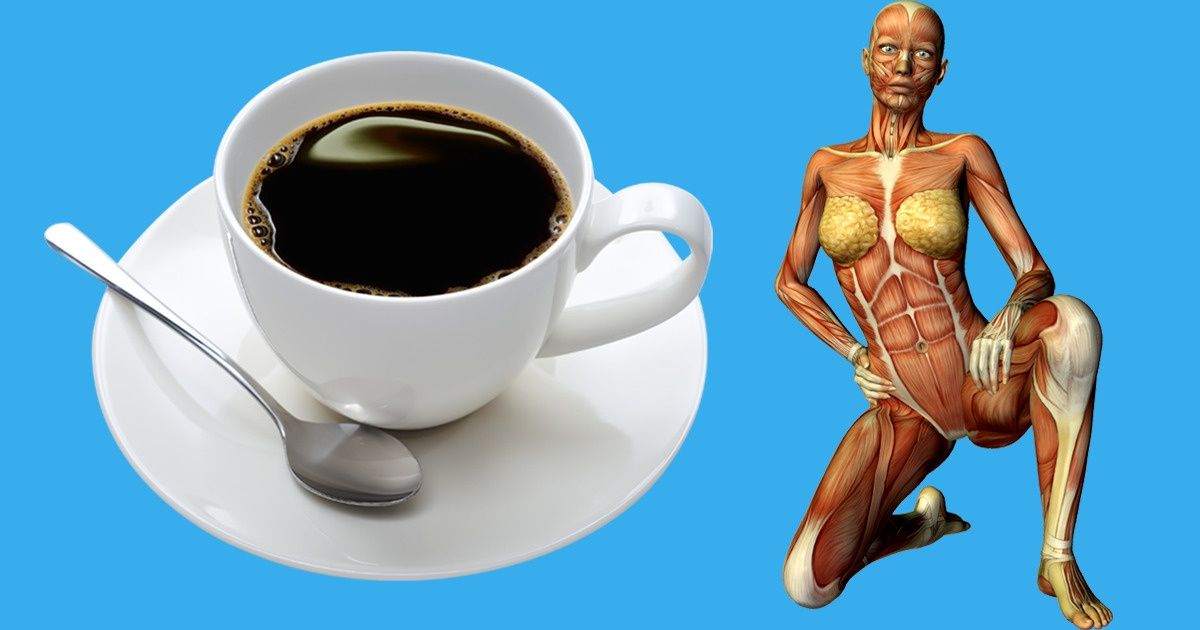Dehydration is more than just feeling thirsty—it’s a condition that can affect nearly every system in your body. In today’s fast-paced world, where fitness, wellness, and high-performance living are at the forefront, understanding how dehydration impacts your health is critical. In this comprehensive guide, we will dive deep into the signs and symptoms of dehydration, examine its impact on physical performance, discuss the effects on your skin and internal organs, outline potential risks and complications, and share effective strategies for preventing and managing dehydration.
Introduction: Understanding Dehydration and Its Impact

Water is the essence of life, accounting for up to 60% of an adult human’s body weight. Every cell, tissue, and organ depends on water to function correctly. When you don’t drink enough water or lose fluids through exercise, illness, or environmental factors, dehydration sets in. Even mild dehydration can negatively affect your energy levels, concentration, and overall well-being. Severe dehydration, however, can lead to serious complications such as kidney failure or life-threatening electrolyte imbalances.
In recent years, the focus on hydration has grown within the fitness community and among health-conscious individuals, making this topic highly relevant. Understanding dehydration is vital not only for athletes and active individuals but also for those looking to enhance their daily health and appearance.
Signs and Symptoms of Dehydration: What Your Body Is Telling You
Recognizing the early signs of dehydration is essential for preventing long-term health issues. Common symptoms include:
- Thirst and Dry Mouth: The most immediate indicator that your body needs water.
- Fatigue and Dizziness: As dehydration affects blood flow and brain function, you may feel unusually tired or lightheaded.
- Dark Urine and Reduced Urination: A clear sign that your body is conserving water, resulting in a higher concentration of waste products.
- Headaches and Muscle Cramps: Dehydration can lead to imbalances in electrolytes like sodium and potassium, triggering headaches and cramps.
- Dry Skin: When your skin lacks moisture, it can become flaky and less elastic.
These symptoms are not just physical cues but also signals that your body’s metabolic processes are being disrupted. For a more detailed discussion on these signs, consider visiting reputable sources such as Mayo Clinic’s dehydration overview.
Impact of Dehydration on Physical Performance: Energy, Endurance, and Fitness

Dehydration is a significant barrier to peak physical performance. Whether you’re an athlete, a fitness enthusiast, or someone with a busy daily schedule, water plays a critical role in maintaining energy levels and muscle function. Here’s how dehydration can impact your physical performance:
- Reduced Muscle Strength and Endurance: Without adequate hydration, your muscles cannot contract as efficiently. This can result in premature fatigue and diminished performance during both high-intensity workouts and everyday activities.
- Impaired Cognitive Function: Dehydration can cause decreased concentration and slower reaction times, which are vital for both athletic performance and work-related tasks.
- Increased Perceived Effort: Exercise may feel more strenuous when you’re dehydrated. This can lead to shorter workout durations and less effective training sessions.
- Electrolyte Imbalance: Essential minerals such as sodium, potassium, and magnesium help regulate muscle contractions. An imbalance can lead to cramps and reduced coordination.
For those invested in maintaining high performance, incorporating hydration solutions and electrolyte supplements can be key. Popular sports drinks, rehydration formulas, and even natural sources like coconut water are commonly used to restore fluid balance during intense exercise. Further insights on hydration for athletes are available on Healthline’s hydration guide.
Effects of Dehydration on Skin and Appearance: The Link Between Hydration and Youthful Skin

Your skin is a mirror of your overall health. Dehydration not only affects internal organs and physical performance but also visibly impacts your skin. Here’s how insufficient hydration can alter your appearance:
- Dry, Flaky Skin: Water is essential for maintaining skin moisture and elasticity. Dehydrated skin often appears dull, tight, and rough, which can accelerate the aging process.
- Increased Appearance of Fine Lines: When your skin lacks proper hydration, fine lines and wrinkles can become more pronounced.
- Acne and Irritation: Dehydration can disrupt the skin’s barrier function, leading to increased susceptibility to acne and other irritations.
- Loss of Radiance: Proper hydration helps maintain a healthy glow and clear complexion, making water intake crucial for those looking to achieve and maintain youthful skin.
For additional skincare tips and scientific insights, consider checking out resources like WebMD’s skin care advice.
Dehydration’s Impact on Organs and Bodily Functions: A Deeper Look at Internal Health

Every organ in your body depends on water to function optimally. Dehydration can have profound effects on internal bodily functions, including:
- Kidney Function: The kidneys play a pivotal role in filtering waste from your blood. Chronic dehydration can lead to kidney stones and even long-term kidney damage.
- Digestive Health: Water aids in digestion and nutrient absorption. Insufficient hydration can lead to constipation and other gastrointestinal issues.
- Cardiovascular Health: Dehydration reduces blood volume, forcing the heart to work harder to pump blood, which can increase blood pressure and strain the cardiovascular system.
- Brain Function: Adequate hydration is crucial for cognitive processes, including concentration, memory, and mood regulation. Even mild dehydration can impair mental clarity.
Maintaining optimal hydration is not just about quenching thirst—it’s about ensuring your organs receive the support they need to function efficiently. More detailed information on these topics can be found on the Centers for Disease Control and Prevention (CDC) website.
Risks and Complications Associated with Dehydration: Serious Health Concerns

While mild dehydration may simply cause discomfort, chronic or severe dehydration can lead to serious health complications. Some of the risks include:
- Heat-Related Illnesses: In hot weather or during vigorous physical activity, dehydration increases the risk of heat exhaustion or heat stroke—a life-threatening condition.
- Electrolyte Imbalance: A significant drop in electrolyte levels can lead to cardiac arrhythmias, muscle weakness, and neurological issues.
- Kidney Damage: Prolonged dehydration strains the kidneys, potentially resulting in kidney stones or even renal failure.
- Compromised Immune Function: Water is vital for the immune system. Chronic dehydration may reduce your body’s ability to fight off infections.
- Cognitive Decline: Persistent dehydration can lead to long-term cognitive impairments, affecting memory and overall brain health.
For those in high-risk environments—such as athletes, outdoor workers, or the elderly—recognizing these risks is paramount. More insights into dehydration-related risks can be explored through resources like Mayo Clinic’s health information.
Preventing and Managing Dehydration: Tips, Strategies, and Solutions
Preventing dehydration is often as simple as adopting a few lifestyle changes and being mindful of your daily water intake. Here are practical strategies to help you maintain optimal hydration:
- Regular Water Consumption: Aim to drink water throughout the day, even if you don’t feel thirsty. Carry a reusable water bottle and set reminders to take a sip.
- Monitor Your Urine Color: Light yellow or clear urine typically indicates proper hydration. Dark urine can be a sign to increase water intake.
- Incorporate Hydration Supplements: For those engaged in high-intensity activities, supplements or sports drinks enriched with electrolytes can help replenish lost fluids and minerals.
- Eat Hydrating Foods: Include fruits and vegetables like cucumbers, watermelon, and oranges in your diet. These foods have high water content and contribute to your daily fluid intake.
- Adjust for Environmental Factors: In hot climates or during prolonged physical activity, increase your water intake to counteract fluid loss through sweat.
- Use Technology: Apps and smart water bottles can track your hydration levels and remind you when it’s time to drink.
Adopting these preventive measures can mitigate the risk of dehydration and ensure that your body operates at its best. For additional tips on hydration and wellness, you can explore expert advice on Healthline’s hydration tips.
Additional Strategies for Optimal Hydration and Well-Being
Beyond these primary tips, consider incorporating lifestyle changes that support overall wellness and hydration, such as:
- Balanced Diet and Nutrition: Combine proper hydration with a balanced diet rich in vitamins, minerals, and antioxidants to support cellular health and energy levels.
- Regular Exercise: Moderate exercise increases water loss, so pairing your workout routines with adequate fluid intake is crucial.
- Mindful Living: Practicing mindfulness and stress management can indirectly improve hydration by encouraging a healthier lifestyle overall.
- Invest in Quality Hydration Products: High-quality water filters, hydration supplements, and even smart water bottles are available for those who want to monitor their daily intake closely. These products can be found through reputable online health and wellness retailers.
Conclusion: Achieving Optimal Hydration for Better Health
Dehydration is a silent disruptor that can significantly impact your health, appearance, and performance. From the initial signs like a dry mouth and fatigue to more severe complications affecting the heart, kidneys, and brain, the effects of inadequate hydration are far-reaching. By recognizing the symptoms early, understanding the physiological impact on your body, and implementing effective hydration strategies, you can improve your overall well-being and performance.
This comprehensive guide has explored the critical aspects of dehydration—from its symptoms and impact on physical performance to its effect on skin and internal organs. Armed with this knowledge and practical tips, you’re better prepared to maintain optimal hydration, prevent complications, and enhance your quality of life.
For continuous updates and expert insights on hydration and overall health, consider subscribing to reputable health blogs and following trusted sources like Mayo Clinic and Healthline. With informed choices and proactive management, you can ensure that your body remains fueled, energetic, and healthy—even in the most challenging conditions.
Embrace the power of water, and let every sip contribute to a healthier, more vibrant life. Stay hydrated, stay healthy, and unlock the full potential of your body every day.









